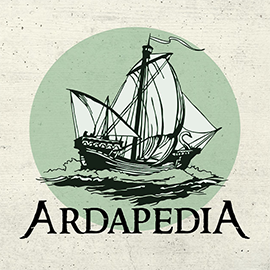Idril: Unterschied zwischen den Versionen
K (Änderungen von 50.17.188.122 (Diskussion) rückgängig gemacht und letzte Version von Liljana wiederhergestellt) |
(WmmJTZyePYapLLr) |
||
| Zeile 1: | Zeile 1: | ||
I don't know much Irish (Gaelic), but I would really like to learn it! I've only peickd up a word or phrase here and there by studying song lyrics . . . and a few from old stories.Yes, Sidhe is an old word for fairy. The more familiar word banshee is derived from this same word, and means female fairy. Oh, and about choosing names maybe this will help you: for me, a great source of names (especially for fantasy) is the dictionary. When you're paging through the dictionary, certain words catch your eye. It's even better if you're using Webster's, because then the little pictures can also catch your eye. You'll discover (or rediscover) a word, and you'll go, Oh! That's what that means! Then your mind sometimes makes a leap of association, and you think, A slight variation on this word would make a great name for that town or that character, because the meaning reveals something about it/her/him. A contemporary popular master of naming is J.K. Rowling, as I'm sure you know! For example: I'd always thought she chose the name Slughorn just for its sound, for the image it evokes in our minds. But I ran into the old word slughorn the other day it actually does mean something! Now, we can enjoy the story perfectly well without knowing what the word meant, historically. But if you do know, it adds one more layer of richness and meaning. Almost every name Rowling uses is purposeful, and that's an excellent technique. | |||
Version vom 10. August 2012, 04:07 Uhr
I don't know much Irish (Gaelic), but I would really like to learn it! I've only peickd up a word or phrase here and there by studying song lyrics . . . and a few from old stories.Yes, Sidhe is an old word for fairy. The more familiar word banshee is derived from this same word, and means female fairy. Oh, and about choosing names maybe this will help you: for me, a great source of names (especially for fantasy) is the dictionary. When you're paging through the dictionary, certain words catch your eye. It's even better if you're using Webster's, because then the little pictures can also catch your eye. You'll discover (or rediscover) a word, and you'll go, Oh! That's what that means! Then your mind sometimes makes a leap of association, and you think, A slight variation on this word would make a great name for that town or that character, because the meaning reveals something about it/her/him. A contemporary popular master of naming is J.K. Rowling, as I'm sure you know! For example: I'd always thought she chose the name Slughorn just for its sound, for the image it evokes in our minds. But I ran into the old word slughorn the other day it actually does mean something! Now, we can enjoy the story perfectly well without knowing what the word meant, historically. But if you do know, it adds one more layer of richness and meaning. Almost every name Rowling uses is purposeful, and that's an excellent technique.
